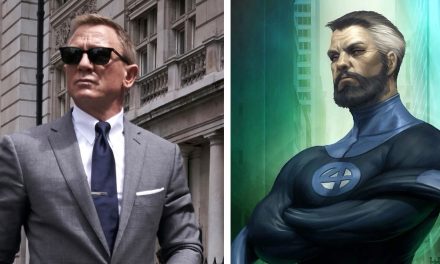
Two years ago, the world lost arguably one of the world’s greatest story tellers to ever live. If you ask any number of people who their favorite writer is, they might feel the need to come up with some impressive name. Names like the roguish western Buddhist philosopher Alan Watts or something safe and unassailable like the perennial Charlotte Brontë. And maybe that really is their favorite, but again, maybe not.
Ask those same people who their favorite superhero is. Watch their eyes light up over the next several minutes. As they eventually start singing the 90’s X-Men theme song with you and show off their Captain America shield tattoo. This was something that mattered to Stan Lee. He’s talked about how in the early years of his career he was embarrassed to admit that he wrote he comics despite how much he loved them. Because people would lose interest and walk away the moment they discovered that he wasn’t a “real” writer.
Stan Lee Was The Consummate Comic Book Fan
As long as I can remember, I’ve always found it a bit ridiculous and sad that there’s always been this effort to disqualify comics as a legitimate storytelling medium. Despite the massive cultural impact those stories have had on our society. For someone like Stan, it was a lot harder to push through in the early days. When they were disregarded as children’s stories by the kind and utter trash by the unkind. That never stopped Stan though, who once said:
“I used to be embarrassed because I was just a comic book writer while other people were building bridges or going on to medical careers. And then I began to realize: entertainment is one of the most important things in people’s lives. Without it they might go off the deep end. I feel that if you’re able to entertain people, you’re doing a good thing.”
A Quick Personal Aside
I was always lucky enough to have that one family member who made it a point to look out for me. That was my grandma. She recognized how much I wanted to read. She would always get me comic books in any amount I wanted. I was fortunate enough to get reading access to all the earliest Marvel stories and they had a massive impact on me.
To this day, I prefer the Silver Age to the Modern age. While most of my formidable comic reading years ended up in the 90s. The best part of that was I could find a ton of 70s Spider-Man comics and such in the 25-cent bin at the local comic book store. When other kids were losing their minds for chromium or hologram plated X-Men books. I was having my heart broken by the death of Gwen Stacy or having my mind blown by the Secret Wars.
I remember my grandma leaving me by the rack of comics in the grocery store when she went shopping. Or when she found me these paperback sized books that contained the first fifteen issues of Spider-Man at a garage sale. I wish I could find them today, they were great. But it didn’t matter if it was Spider-Man, the Avengers, Daredevil, Fantastic Four, or anything else, those comics gave me exactly what I needed to get through everything.
DC Is Great, But Marvel Is Where It’s Always Been At

I need to say this next bit before I get too far ahead of myself: I always liked DC comics. But I always loved Marvel comics. That was a huge difference to me, and the reason was simple: I was able to relate to them more. See, DC characters were always sort of these elite individuals who I was never going to be, who I could never see myself talking to. So, okay, some examples. Superman was an orphan, sure, except he never really had to feel like one or deal with feeling ostracized. He was raised from infancy by two of the most loving people in the world. He became the perfect hero. For every struggle Superman may have had, he never really had to face adversity.
Batman is someone who everyone loves. Yes, his parents died. But then he became a billionaire master scientist expert martial artist best detective and on and on. Sure, it sucks his parents died, but then he had literally every other conceivable advantage a person could have. Diana was already a godlike Amazon before she became Wonder Woman. Hal Jordan was already the best test pilot in the air force before he got his Green Lantern ring. Barry Allen was a forensic scientist with a loving wife and his biggest problem was punctuality before he became the Flash. You might see a pattern. It’s not to say that good stories didn’t come from this, far from it, but places like Gotham and Metropolis and Themyscira and Central City all felt artificial and fictional.
Marvel and Stan Lee’s Characters Just Felt Different

But then I would read Marvel. Peter Parker had to temper his anger with a mask of humor. Powers didn’t solve his problems, they just gave him more to do. Spider-Man taught me that even when things are horrible, and it feels like the world is against you and you can’t catch a break, you have a responsibility to help others when you can.
Clint Barton was the world’s greatest archer. But he only got that way after he became an orphan. Then he joined a circus and was betrayed by his mentor, his adopted family, and his own brother. And when he went out into the world, people just assumed he was a criminal. But he kept it up anyway, fighting the greatest threats in the universe with just a stick and a string. Hawkeye taught me that even when you have no one and nothing, you can still become better than anyone ever thought you could.
Janet Van Dyne was a founding member of the Avengers, she even named the team. She was also constantly overlooked by her peers and talked down to by her husband, despite the fact that she fought every bit as bravely as anyone else on the team. When respect wasn’t shown to her, she demanded it and never, ever stopped trying to improve. Wasp taught me to know my own self-worth.
Stan’s Stories Were Much More Than Just Comics
I could on all day with the examples, but that’s not what I’m writing about today. I’m talking about the man who laid those lessons out for me to learn. The man who told the story of New York, not Gotham. And even when he took us to space or Atlantis or even hell, those places and the people in them were still more real than they had any right to be. And it was because Stan Lee, like the rest of, was a very real person who understood the very real struggles of being a human being.
Built into the very DNA of his characters were stories of tragedy. Sure, but bursting from the confines of those tragedies was hope. I have always believed he wanted to entertain, but he did so much more than that. He told stories that let people know they weren’t alone and that there was good in the world. In his stories, for as much as punching a problem is supposed to solve everything, Stan knew that wasn’t the point. It takes an extraordinary person to showcase this to world, to build and then build on top of that and then build some more.
RIP Stan Lee

And this is why Stan Lee has meant something to me my entire life. Because when I was a child, I read countless stories of hope in hopeless situations. Because of him, I knew that my family, or bullies in school, or any circumstance couldn’t mold me into something I didn’t want to be. That no matter what happened to me, I’d always have the choice to do good and to help where I could. His stories made me want to tell stories. When people ask me who my writing influences are, again, it is so easy to say something like Terry Pratchett or Ursula K. Le Guin or Douglas Adams or even Jim Butcher.
And I’m always tempted to do this because in my head I think the answer other people want is other novelists. But the simple answer is that I would have never wanted to tell a story if it weren’t Stan Lee. I would not be the person I am today without Stan Lee. And more than that, I was just one scared kid who found courage reading his comics. And I know that I am in the company of millions. He touched so many lives, and for that I am grateful. And for as sad as I am today, I also have hope. His creations and his lessons outlive him, and they will inspire more to be like him.






I’m a Stan Lee fan and his contributions are vast. But he was not a comic book fan. There exist countless examples in interviews where he declares this, states how he doesn’t read comics, and “doesn’t have the time” to keep up with Marvel post-1972. The MYTH of Stan is what you’d like to preserve here- the happy “Geek Godfather” that never was. For a guy who apparently loved comics, Stan tried for decades to get out of it.